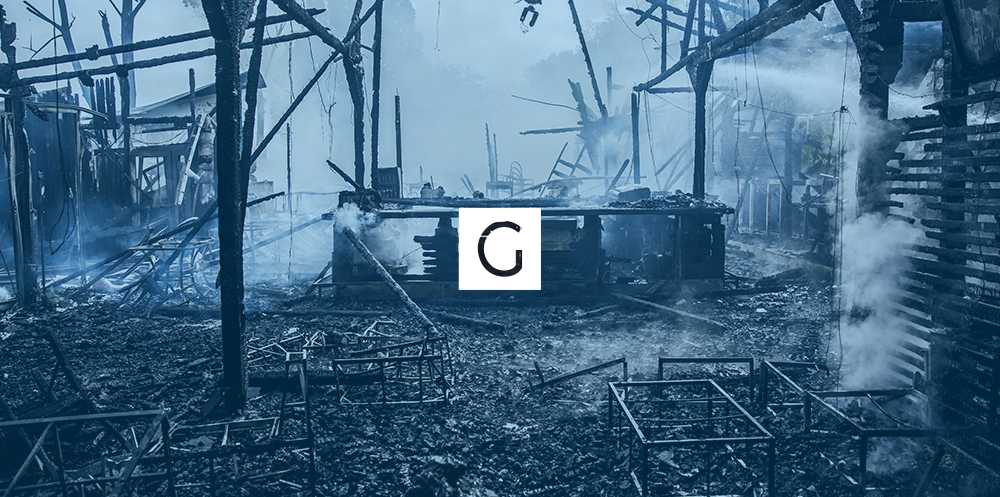In the recent decision of the Superior Court of Quebec St-Amour c. Promutuel Boréale In the recent Québec Superior Court decision St-Amour c. Promutuel Boréale (2025 QCCS 329), the Court dismissed a claim for over $ 500,000 in fire damages brought by a rural landlord against his long-standing insurer. The case offers a cautionary tale for property owners, particularly those who lease to third parties, about the scope of their obligations under insurance contracts and the risks of misrepresentation or omission.
Germain St-Amour, a farmer and local businessman, owned multiple properties in the municipality of Aumond. One of his rental buildings, insured with Promutuel Boréale, was destroyed by fire in July 2017 while he was out of province. His tenant, Mr. Sicard, was alone at the time and had started cooking with a portable propane stove inside the home, then left the stove unattended while gathering firewood outside. The fire spread quickly, ultimately razing the building.
St-Amour filed a claim under his insurance policy, but Promutuel refused to indemnify him. The insurer cited several grounds for denial : first, that the insured property had been used for criminal purposes; second, that St-Amour had failed to disclose material facts which aggravated the risk; and third, that he made false statements during the claims process. The matter proceeded to trial, where the Court was asked to determine whether Promutuel’s denial was valid under Québec’s civil law framework.
The Court found that, although there was no clear evidence of ongoing criminal activity at the time of the fire, St-Amour had been aware — well before the fire —of events that materially increased the insurer’s risk. These included police searches of the property, the incarceration of his tenant for drug trafficking, and the presence of prior criminal charges. Testimony from the tenant and his partner confirmed that St-Amour had been made aware of these developments. Yet, despite this knowledge, he did not inform Promutuel. Instead, he continued to maintain the policy as if the risk profile remained unchanged.
The judge emphasized that insurance contracts impose a duty of good faith on the insured, which includes the obligation to disclose any change in circumstances that could affect the insurer’s evaluation of risk. In this case, the Court concluded that the insured had breached that duty. Moreover, St-Amour made affirmative statements to the insurer after the loss that were later contradicted by witness evidence and by the recorded conversation he had with the insurer’s representative. These misrepresentations amounted to false declarations which, under the Civil Code, result in forfeiture of the right to indemnity.
While Promutuel also argued that the fire was deliberately set or orchestrated, the Court found the evidence of intentional wrongdoing insufficient to support such a conclusion. Notably, the tenant himself was not insured and would have had no financial motive to destroy the property. Nor did the insurer succeed in establishing that St-Amour had participated in or knowingly encouraged any scheme to cause the loss.
Ultimately, the Court held that the insurer had validly cancelled the policy retroactively to July 2016—the date when the tenant’s criminal conduct became known to St-Amour—and that it was under no obligation to pay the claim. The claim was dismissed with legal costs against the insured.
For small and medium-sized business owners, this case highlights several important practical takeaways. First, landlords must take reasonable steps to vet their tenants and should document any information that may affect their insurer’s risk assessment. Second, once an insurance policy is in place, the duty to disclose does not end. If you become aware of criminal activity, safety hazards, or any other risk-relevant change, you must promptly inform your insurer. Third, honesty during the claims process is non-negotiable. Even seemingly minor misstatements can be interpreted as misrepresentations with serious consequences, including loss of coverage.
Insurance disputes often turn on credibility and timing. A failure to act, to ask questions, or to communicate with your insurer may be treated as deliberate silence. As this case demonstrates, the financial and reputational costs of such omissions can be steep.
If you have questions about insurance coverage, disclosure obligations, or a denied claim, contact our insurance law team for tailored advice.

